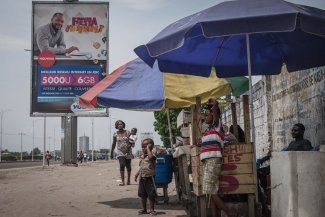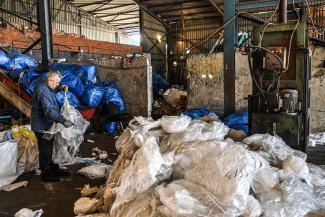With the upcoming UN Climate Change conference in Paris and winter fast approaching, estimates suggest that between 50 and 125 million EU citizens may be at risk of energy poverty.
According to a recent report produced for the European Commission by the energy think-tank Insight_E, various factors such as low income, high energy prices and energy-inefficient housing are to blame for the scourge of “energy poverty” – a term describing the situation faced by those “unable to adequately heat or provide other required energy services in their homes at affordable cost”.
Politicians from across the spectrum have expressed alarm over the findings and the scale of the problem.
“It’s a disgrace,” says Theresa Griffin, a Labour party MEP for the northwest of England. “We need to pin down this figure and get more accurate data from the Commission. No EU citizen should have to choose between heating or eating,” she tells Equal Times.
Griffin says that a lack of information about low energy tariffs has also contributed to the problem as cheaper fuel prices are available but many consumers remain uninformed.
While the issue of energy poverty is gaining more public traction, Griffin says that “we can’t let another winter go by without taking action”, adding that her political grouping in the European Parliament – the centre-left Progressive Alliance of Socialists and Democrats (S&D) – will produce an energy poverty manifesto over Christmas, which it plans to pass onto EU energy minsters.
In the UK, the most recent Annual Fuel Poverty Statistics Report shows that 2.35 million households are deemed energy poor. Winter deaths in England and Wales in 2012-13 rose by a third to an estimated 31,000 deaths.
Public awareness campaigns and energy savings schemes have been launched by groups such as Energy Projects Plus in Merseyside and Citizens Advice, whose national Big Energy Savings Week aims to inform people on how to cut bills and receive support.
Challenges
But this is an EU-wide problem and in central and southern Europe hot summers means that many vulnerable people cannot afford air conditioning.
The Commission highlighted energy poverty in its recent Energy Union Communication and has launched a new pilot project to help map and measure energy poverty and share examples of best practice in member states. The first results are expected in spring 2016.
The Commission also claims it is engaging with member states on tackling consumer vulnerability through the creation of a database of shared experiences regarding energy price deregulation as well as social and energy policy measures.
Griffin believes the EU needs “a framework to tackle energy poverty, to improve retail market conditions to support vulnerable consumers, putting them centre stage.” She is also calling for EU-wide definitions for the terms “energy poverty” and “vulnerable consumers” to aid a more cohesive response.
However, under EU legislation the responsibility for addressing energy poverty lies with the member states, less than a third of which explicitly recognise the concept of energy poverty, according to the Insight_E report.
In addition, a Commission spokesperson claims that expert groups deem it inappropriate to harmonise definitions on ‘vulnerable consumers’ due to wide ranging “drivers of vulnerability, economic disparities and policies addressing vulnerability in different member states”. The focus instead is on “improving the comparability of definitions across the EU”.
Energy efficiency
Meanwhile, Claude Turmes, a Luxembourgish MEP and spokesperson for energy policy for the European Greens EU Parliament group, is calling for more dialogue between EU and local level actors, such as the Covenant of Mayors. “6,600 cities are active in energy transition [to clean energy] and are close to citizens regarding energy poverty,” he tells Equal Times.
Energy efficiency, referred to by proponents as the ‘first fuel,’ is the “only powerful answer to energy poverty,” states Turmes. However, in addition to funding, he is calling for detailed energy efficiency policy design, which must be tailored to low-income citizens.
Turmes is calling for “a door-knocking policy, which speaks to vulnerable consumers in their language, rather than just relying on the internet.”
Last year, MEPs such as Griffin and Turmes demanded a 40 per cent binding energy savings target in the EU 2030 energy strategy. However, when an agreement was reached in October 2014, EU governments watered it down to a non-binding 27 per cent.
Nevertheless, the Commission remains hopeful that the 27 per cent target can still provide benefits for vulnerable consumers and expects a review by 2020, with the possibility of increasing this target to 30 per cent.
The Commission clearly considers energy efficiency the best long-term solution to energy poverty: it is investing €18 billion (US$19.2 billion) of European Structural and Investment Funds (ESIF) in increasing energy efficiency for buildings, including social housing renovation.
In addition, this October MEPS passed a resolution calling on the EU to demand a 40 per cent energy efficiency target at the Paris climate talks, which constitutes the mandate for the Parliament’s delegation to the conference. Any deal reached in Paris will have to be voted on by MEPs.
Furthermore a Commission feasibility study will be launched before the new year, on how EU funds could finance low-cost energy efficiency measures in low-income households.









